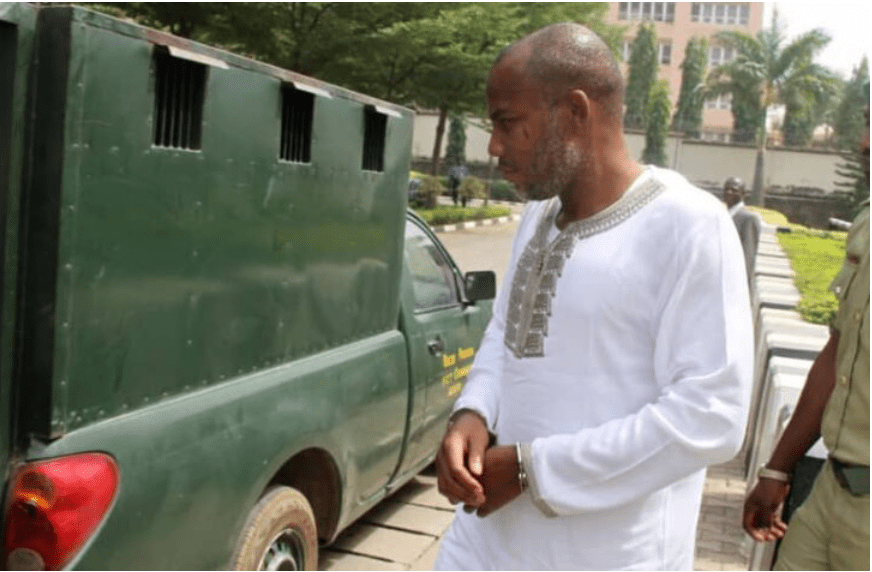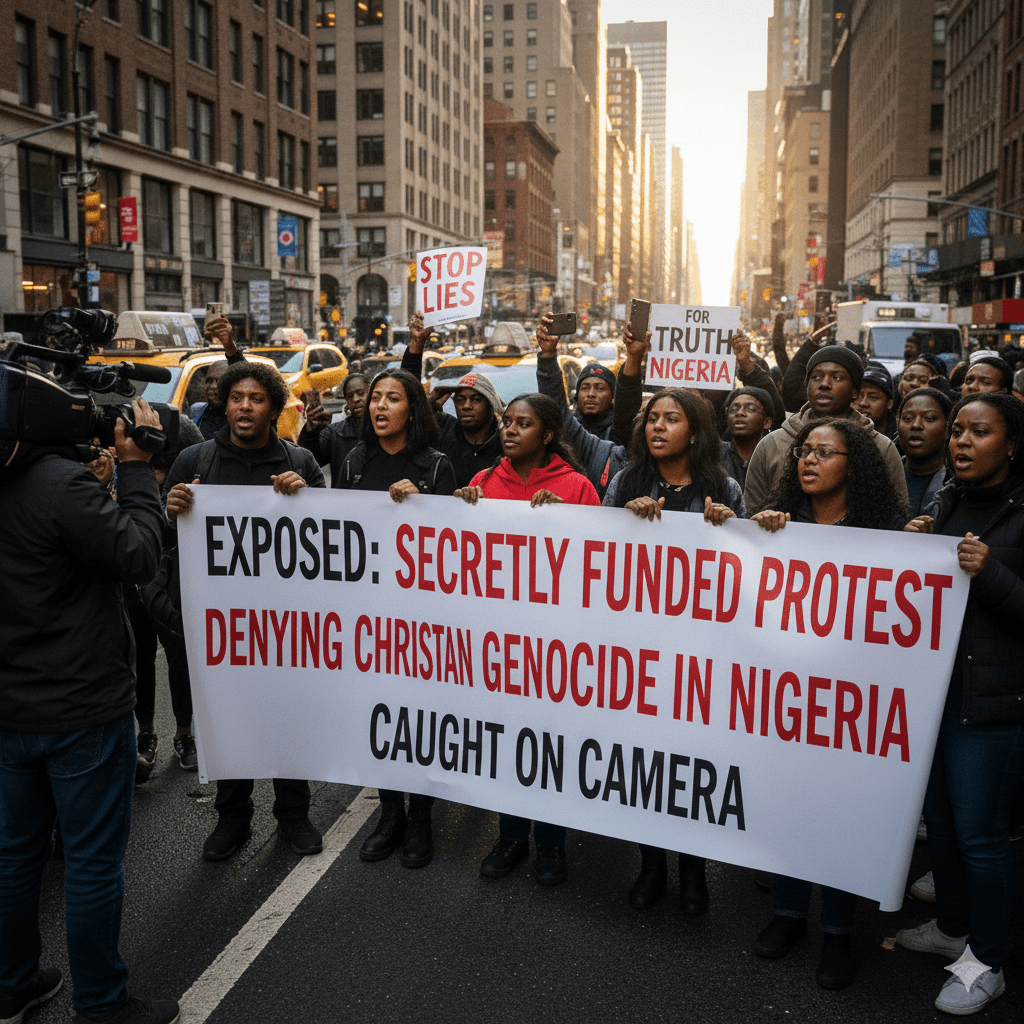Last Updated on 22 November 2025

IPOB leader Nnamdi Kanu has been transferred from DSS custody in Abuja to Sokoto Maximum Security Prison within 24 hours of his controversial life imprisonment sentence – a verdict many legal experts denounce as politically motivated. His family, legal team, and supporters allege the transfer is a deliberate attempt to orchestrate his death while avoiding direct responsibility.
Family alleges extrajudicial killing plot
Kanu’s family has denounced the move as “dangerous and suspicious,” raising fears for his wellbeing in a facility unsuitable for a high-profile detainee with specific health requirements.
Prince Emmanuel Kanu revealed authorities provided no advance notice, effectively cutting Kanu off from his personal medical team. The family characterises the transfer as potentially lethal, alleging it represents a calculated strategy to cause Kanu’s death through denial of medical care, exposure to violence, or a staged incident. Prince Emmanuel stated the government seeks “plausible deniability” for what they view as an extrajudicial killing.
The family has appealed to the United Nations, African Union, United Kingdom, United States, and European Union to monitor his welfare and ensure transparency.
Legal team questions timing
Lead counsel Aloy Ejimakor argues the transfer undermines Kanu’s ability to mount an effective appeal, coming immediately during crucial preparation. Sokoto prison lacks facilities appropriate for Kanu’s profile and medical needs. His legal team maintains that Kanu, who advocated for self-determination through peaceful means and referendum, is being persecuted for his political beliefs rather than any legitimate criminal activity.
Security vulnerabilities at Sokoto prison
Sokoto Maximum Security Prison’s troubled history has amplified safety concerns:
- Multiple jailbreak attempts by armed groups involving gunfire and casualties
- Coordinated attacks on northern prisons targeting high-profile detainees
- Persistent structural and security weaknesses
The prison’s location near regions with extremist activity, combined with staffing challenges, makes it high-risk for prominent detainees. Kanu’s advocates assert that transferring him despite these known risks suggests deliberate intent rather than administrative oversight, creating conditions where his death could occur through prison violence, medical neglect, or third-party attack, allowing authorities to disclaim direct responsibility.
Human rights and medical concerns
Human rights organizations warn the transfer may violate international standards for prisoner treatment, including disruption of specialized medical care and restricted legal access. Family representatives hold the Nigerian government fully accountable for Kanu’s safety and will treat any harm as state-sponsored assassination. They’ve documented transfer details and medical requirements with international human rights bodies as evidence of premeditation.
Political ramifications
Kanu remains a symbolic figure for the Igbo community and IPOB. Supporters view him as a freedom fighter championing marginalised Igbo rights and advocating for self-determination amid systemic discrimination. Many see his prosecution as political repression against voices demanding regional autonomy. Observers note the stark contrast between aggressive prosecution of Kanu and reluctance to pursue armed groups terrorising other regions.
Historical pattern of concerns
Since his illegal extraordinary rendition from Kenya in June 2021, questions have persisted about due process. Previous reports indicated extended solitary confinement and restricted family access, treatment human rights groups characterized as torture.
Critics point to a pattern: a fundamentally flawed trial, an immediate life sentence ignoring legal precedents, and now sudden transfer to a vulnerable facility. Supporters emphasise Kanu has never been convicted of violence and his advocacy focused on constitutional means.
Regional and international implications
The transfer has reignited tensions in Nigeria’s southeast, where communities feel systematically excluded despite substantial contributions to national development. Any harm to Kanu could trigger widespread unrest. Kanu holds British citizenship, and UK Parliament members have raised concerns about his illegal rendition. His case has become a litmus test for Nigeria’s commitment to human rights and rule of law.
What happens next
Critical developments expected:
- Emergency motion challenging the transfer
- Formal appeal against life sentence
- International human rights organizations expected to issue statements and send observers
- IPOB has called for peaceful protests and increased international pressure







